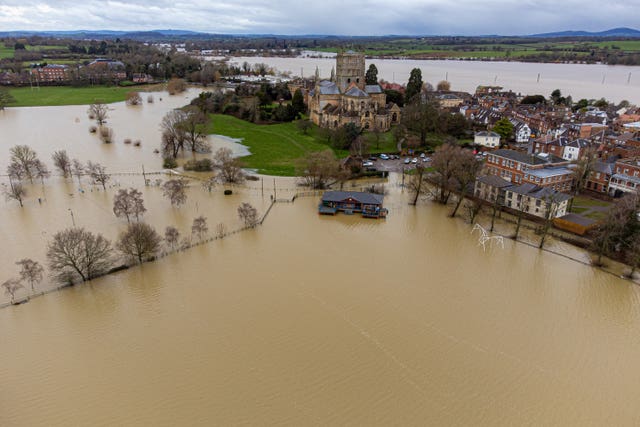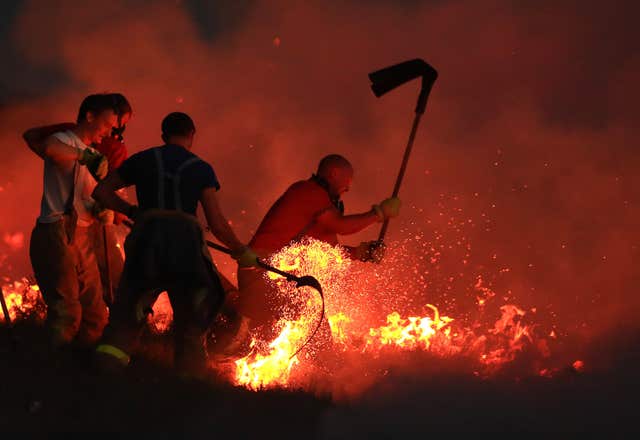
A siren-like emergency warning message will be sent by the Government to mobile phone users across the UK next month to test a new public alert system.
Phone users will be unable to use other features on their devices unless they acknowledge the alert, due to be sent on Sunday April 23.
The system – modelled after similar schemes in the US, Canada, the Netherlands and Japan – is intended to be used in life-threatening situations including flooding and wildfires.

The alerts on St George’s Day will appear on the home screens of people’s phones, accompanied by a loud warning sound and vibration.
The scheme will initially focus on the most serious severe weather-related events, with the ability to get a message to 90% of mobile users within the relevant area in an emergency.
Chancellor of the Duchy of Lancaster Oliver Dowden said: “We are strengthening our national resilience with a new emergency alerts system, to deal with a wide range of threats – from flooding to wildfires.
“It will revolutionise our ability to warn and inform people who are in immediate danger, and help us keep people safe.
“As we’ve seen in the US and elsewhere, the buzz of a phone can save a life.”

People who do not wish to receive the alerts will be able to opt out in their device settings, but officials hope the life-saving potential of the messages means that users will keep them on.
The alerts will only ever come from the Government or emergency services, and they will include the details of the area affected, and provide instructions about how best to respond.
The Cabinet Office said the alerts are secure, free to receive, and one-way, insisting they do not reveal anyone’s location or collect personal data.
Tests of the service have already taken place in East Suffolk and Reading.
The scheme could eventually be expanded to cover terrorist incidents, but officials acknowledged that much more information about how the alerts system operates in the UK would be needed before that could happen in response to a fast-moving attack.

National Fire Chiefs Council chairman Mark Hardingham said: “Together with every fire and rescue service in the country, I’m looking forward to having emergency alerts available to help us to do our jobs and to help communities in the event of emergencies.
“We’ve seen this type of system in action elsewhere across the world and we look forward to having the facility here in the UK – by working together with fire services and partners, we want this system to help us to help you be as safe as you can if a crisis does hit.”
The Environment Agency’s Caroline Douglas, the executive director for flood and coastal erosion risk management, said: “Being able to communicate warnings in a timely and accurate manner during incidents is really important to help people take action to protect themselves, their families, and their neighbours.”


Why are you making commenting on The National only available to subscribers?
We know there are thousands of National readers who want to debate, argue and go back and forth in the comments section of our stories. We’ve got the most informed readers in Scotland, asking each other the big questions about the future of our country.
Unfortunately, though, these important debates are being spoiled by a vocal minority of trolls who aren’t really interested in the issues, try to derail the conversations, register under fake names, and post vile abuse.
So that’s why we’ve decided to make the ability to comment only available to our paying subscribers. That way, all the trolls who post abuse on our website will have to pay if they want to join the debate – and risk a permanent ban from the account that they subscribe with.
The conversation will go back to what it should be about – people who care passionately about the issues, but disagree constructively on what we should do about them. Let’s get that debate started!
Callum Baird, Editor of The National
Comments: Our rules
We want our comments to be a lively and valuable part of our community - a place where readers can debate and engage with the most important local issues. The ability to comment on our stories is a privilege, not a right, however, and that privilege may be withdrawn if it is abused or misused.
Please report any comments that break our rules.
Read the rules here